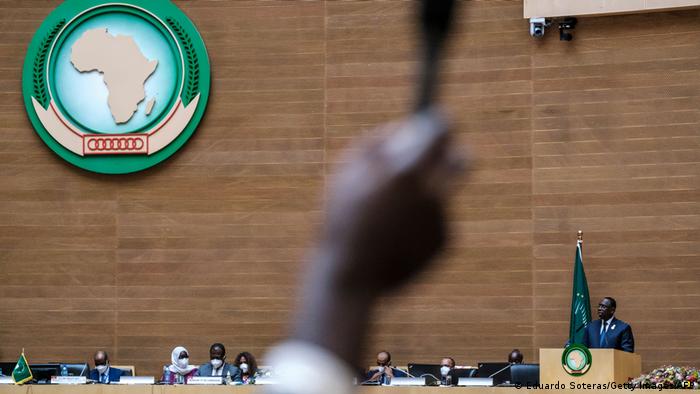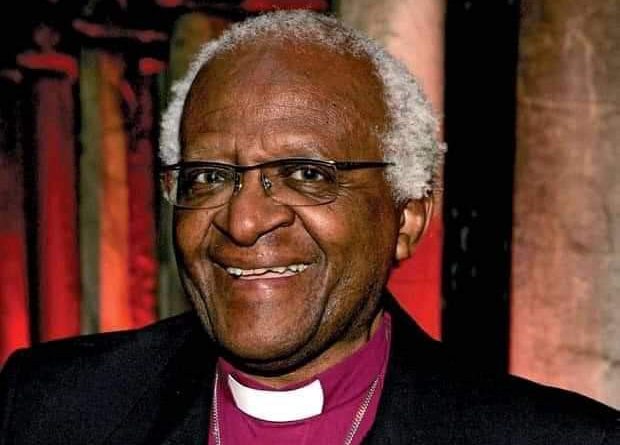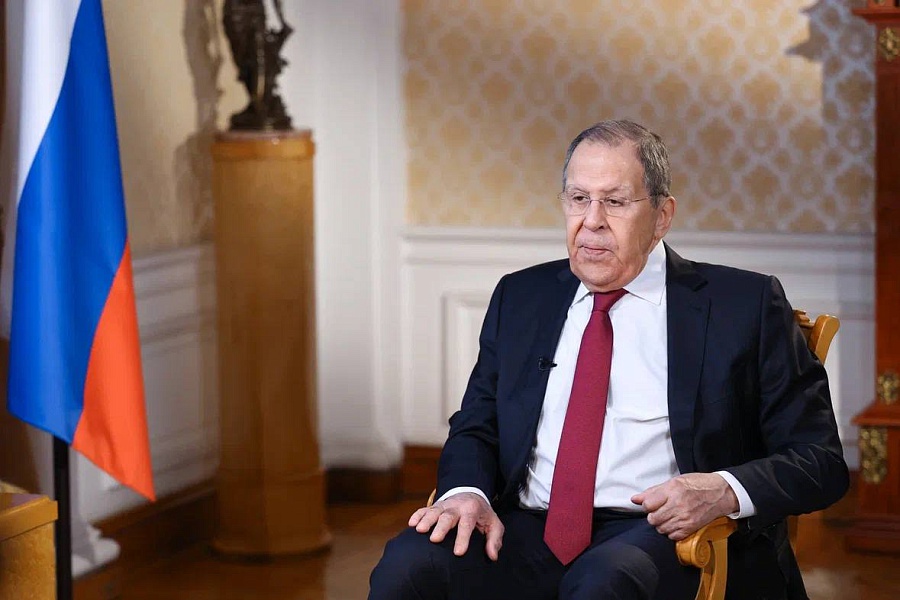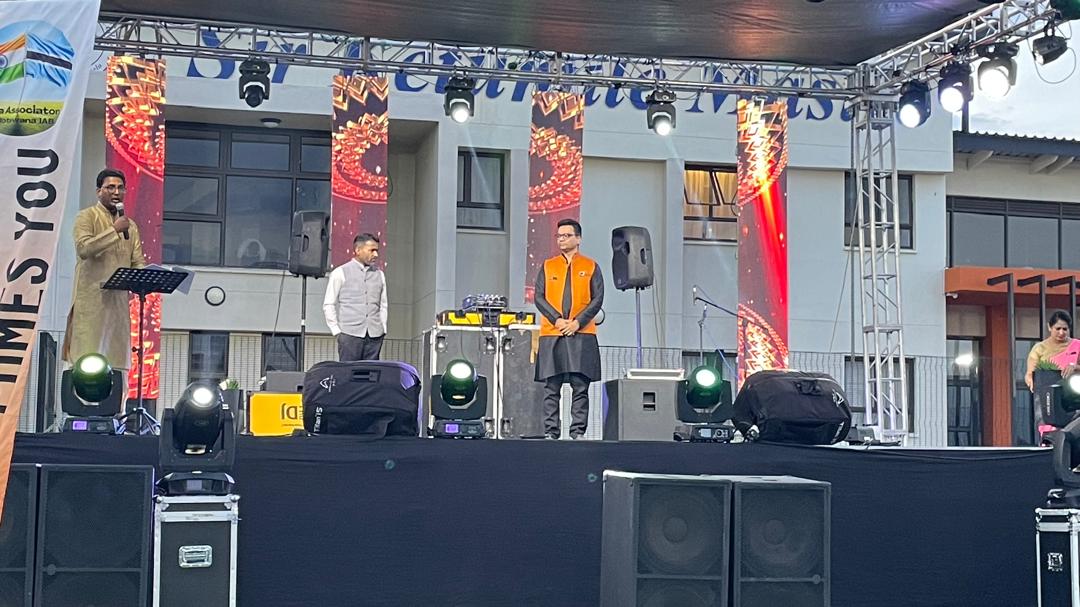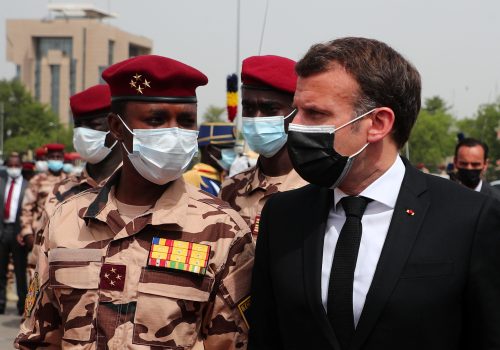
French President Emmanuel Macron flanked by Mahamat Idriss Deby, son of the late Chadian president, arrives to attend the state funeral for the late Chadian President Idriss Deby in N'Djamena, Chad April 23, 2021. Christophe Petit Tesson/Pool via REUTERS
MENASource by Emadeddin Badi
On April 20, after clashes that pitted the Chadian national army against rebels in the Kanem region of northern Chad, the country’s President Idriss Déby was killed. Déby, a larger than life figure that had ruled the country for over three decades, had flown to northern Chad to visit his troops at the military frontline.
With his death, France—Chad’s former colonial power—lost one of its closest allies in the Sahel, an arid, underdeveloped area stretching from Senegal to Sudan where jihadists have thrived on surrounding states’ governance failures. At his funeral on April 23, French President Emmanuel Macron declared:

“We will not let anybody put into question or threaten Chad’s stability and territorial integrity.” This comes as no surprise. France had been buttressing Déby’s rule ever since it supported the coup d’état which brought him to power in 1990.
French troops, reconnaissance aircraft,and warplanes were often deployed to support Déby whenever rebels and opposition groups mobilized to unseat him. This time, however, the tyrant’s propensity for frontline spectacles proved to be his undoing. Far from being the sole architect of his premature death, the conditions that led to Déby’s passing are also a direct byproduct of the myopic policies of his main Western ally—France—in neighboring Libya. Déby’s death illustrates inherent flaws in French foreign policy in Libya and Chad and the shortcomings of Paris’ impulse to prop up autocrats in Africa.
The rebels that launched an incursion into northern Chad were from the Front for Change and Concord in Chad (FACT), a rebel group founded by dissident Chadian army officers in 2016, with the explicit aim of overthrowing Déby. FACT had launched their offensive into northern Chad from Libya’s southern region of Fezzan right after presidential elections were organized in their home country on April 11.
In Libya, FACT fighters operated for years as guns-for-hire, offering their services to the highest bidder. They also benefit from equipment supplied by the conflict parties and raise revenue through criminal economic activities, such as trafficking, smuggling, and gold mining. For the better part of FACT’s existence—the bulk of which was spent in Libya—most of the group’s fighters have been aligned and fighting on behalf of General Khalifa Haftar, the chief of the Libyan National Army. Aside from benefitting from weaponry supplied to Haftar by his foreign backers, FACT fighters even received training from Russia’s Wagner Group mercenaries as part of Haftar’s attempted coup—which France politically abetted and militarily supported—against the then United Nations-recognized Government of National Accord in Tripoli in 2019.
This backing was not new. For years, Haftar’s chief political backer in Western policymaking circles has been France. This disconcerting support had catapulted the septuagenarian general into political relevance despite his clear authoritarian aspirations. Haftar’s claim of building a professional military institution was often uncritically echoed by Paris despite it being a fallacy intended to veil a highly personalized style of rule.
It was belied by the general’s handing of key positions to his sons, reliance on irregular tribal groups, empowerment of hardline Salafi factions, and expedient co-option of local criminal militias and mercenaries for his broader designs. Foreign troops—such as Sudanese and Chadian rebels—have long been a key holding and fighting force within the ranks of Haftar’s troops, though much of the international media attention has only been on the Russian Wagner Group mercenaries that now operate in his territory.
Yet, despite the clear implication of attacks against civilians and war crimes by his amalgam of forces, France never revised its long-standing support for the general. This doubling down on Haftar often puzzled observers because, unlike with Chad’s Déby, propping up an ailing general like him could never be remotely argued to be pragmatic.
In the rare instances where their support for Haftar was acknowledged, French policymakers often justified their partnership with the general by portraying him as an ally that could counter Libyan Islamist and jihadist militias with links to al-Qaeda and the Islamic State of Iraq and al-Sham (ISIS). By supporting Haftar, they saw another Franco-African military alliance forged, enhancing the Sahel’s security.
This prompted France to support Haftar’s military operations in Benghazi in 2015 clandestinely, deploy reconnaissance aircraft to back his territorial expansion, and embed French forces operating US-manufactured anti-tank missiles with his troops during his botched 2019 coup.
Despite fully knowing that mercenaries were part and parcel of Haftar’s forces, French bestowal of international legitimacy to him via diplomatic engagement was complemented with military support that effectively never abated. This backing not only added a key Western ally to the numerous foreign powers—such as Egypt, Russia, and the United Arab Emirates—already bolstering the general, it also was at cross-purposes with every French premise to support him.
Haftar jettisoned Libya’s political transition, created the space for jihadists to thrive by ushering in an internationalized civil war, and the repercussions of his French-backed actions have now caused direct instability in the Sahel.
To see one of France’s most reliable—yet autocratic—partners in the Sahel being killed by mercenaries that benefitted from the military support and incompetence of another Paris-supported aspiring authoritarian in Libya is a cynical twist of fate.
Both the Chadian and Libyan theaters highlight France’s overlooking of dismal records in corruption, human rights violations, and contempt for democratic values in favor of a narrow securitized outlook that prioritizes a false sense of security and illusory stability.
With Déby unexpectedly gone, Chad’s transition hangs in the balance while France scrambles to back what is effectively another coup—by none other than Déby’s son—under the guise of preserving continuity. One can only hope that Paris takes heed of its current predicament in Chad to amend its Libya policy, because Chad, Libya, and the Sahel can only truly be stable when France does away with its flawed, long-standing approach to the region.
Emadeddin Badi is a non-resident senior fellow at the Atlantic Council’s Middle East Program. Follow him on Twitter @emad_badi.






